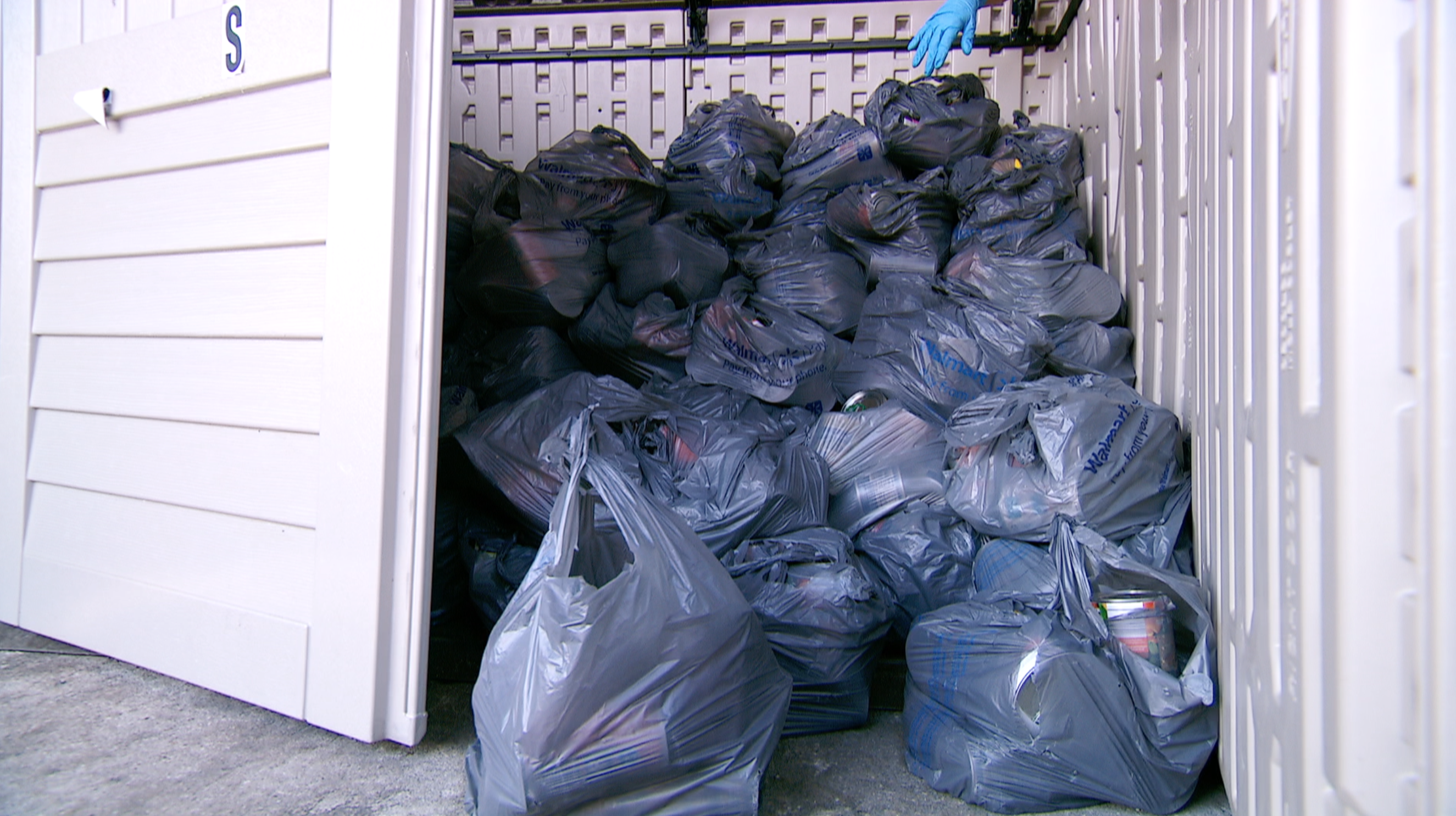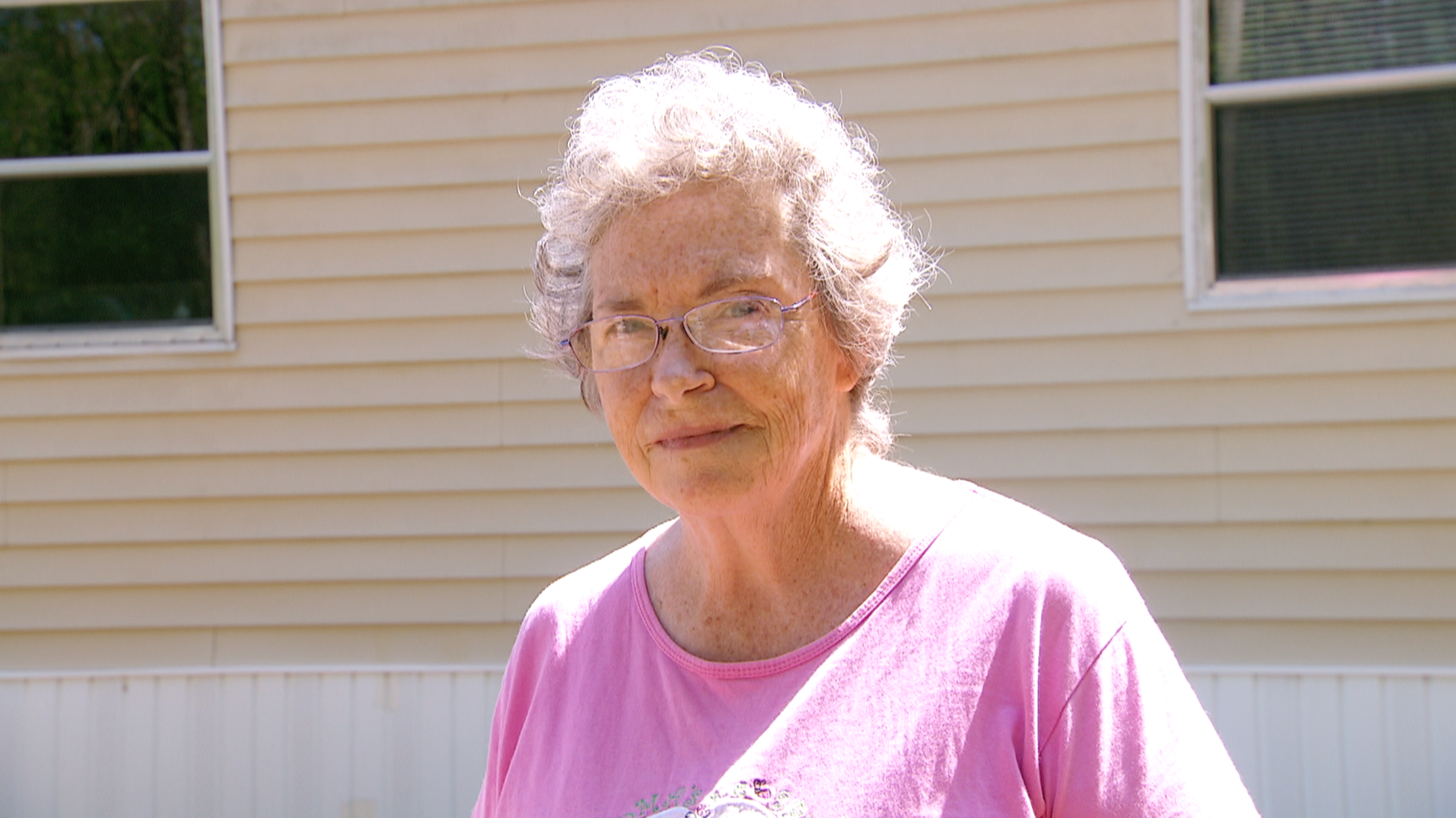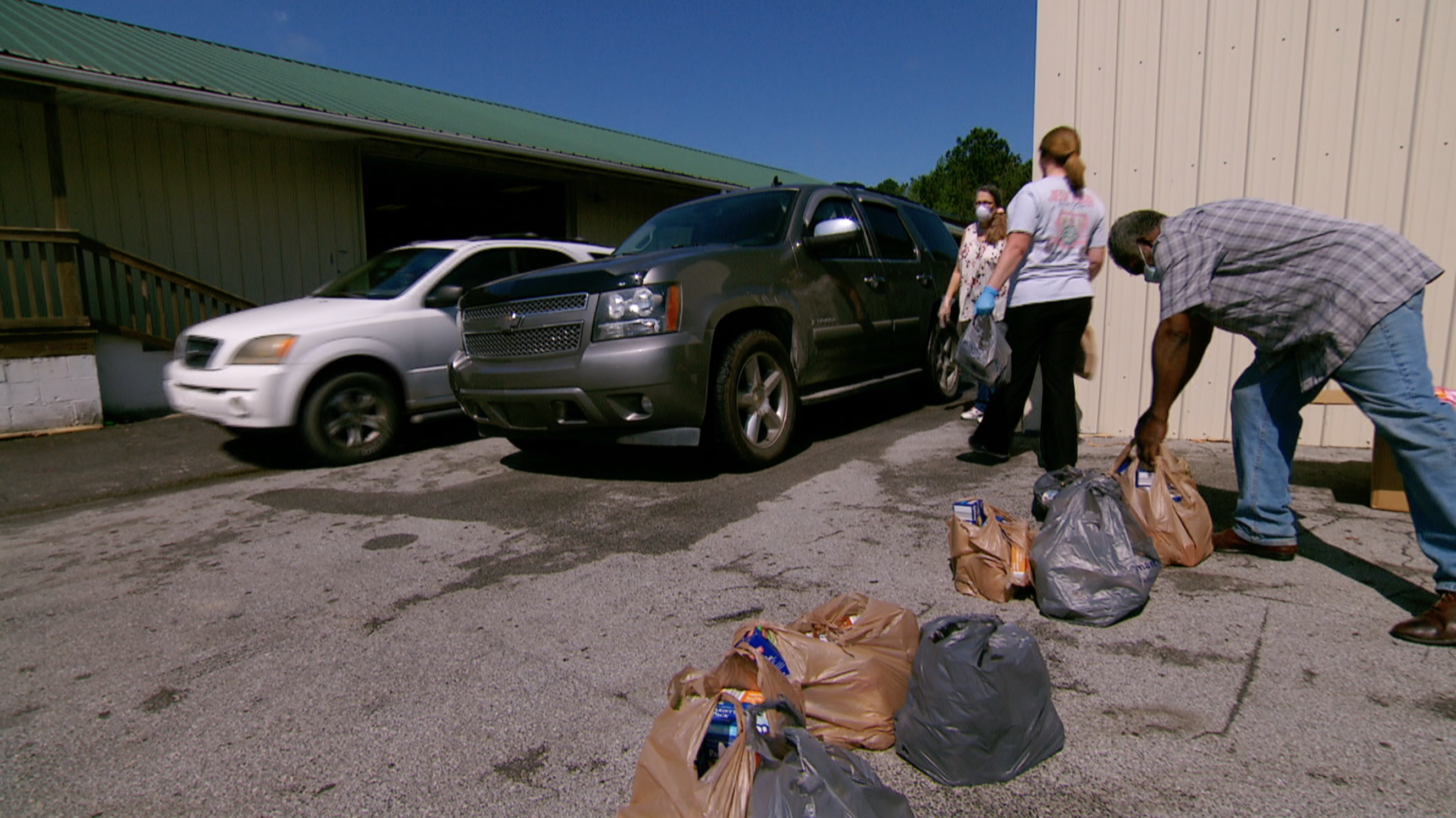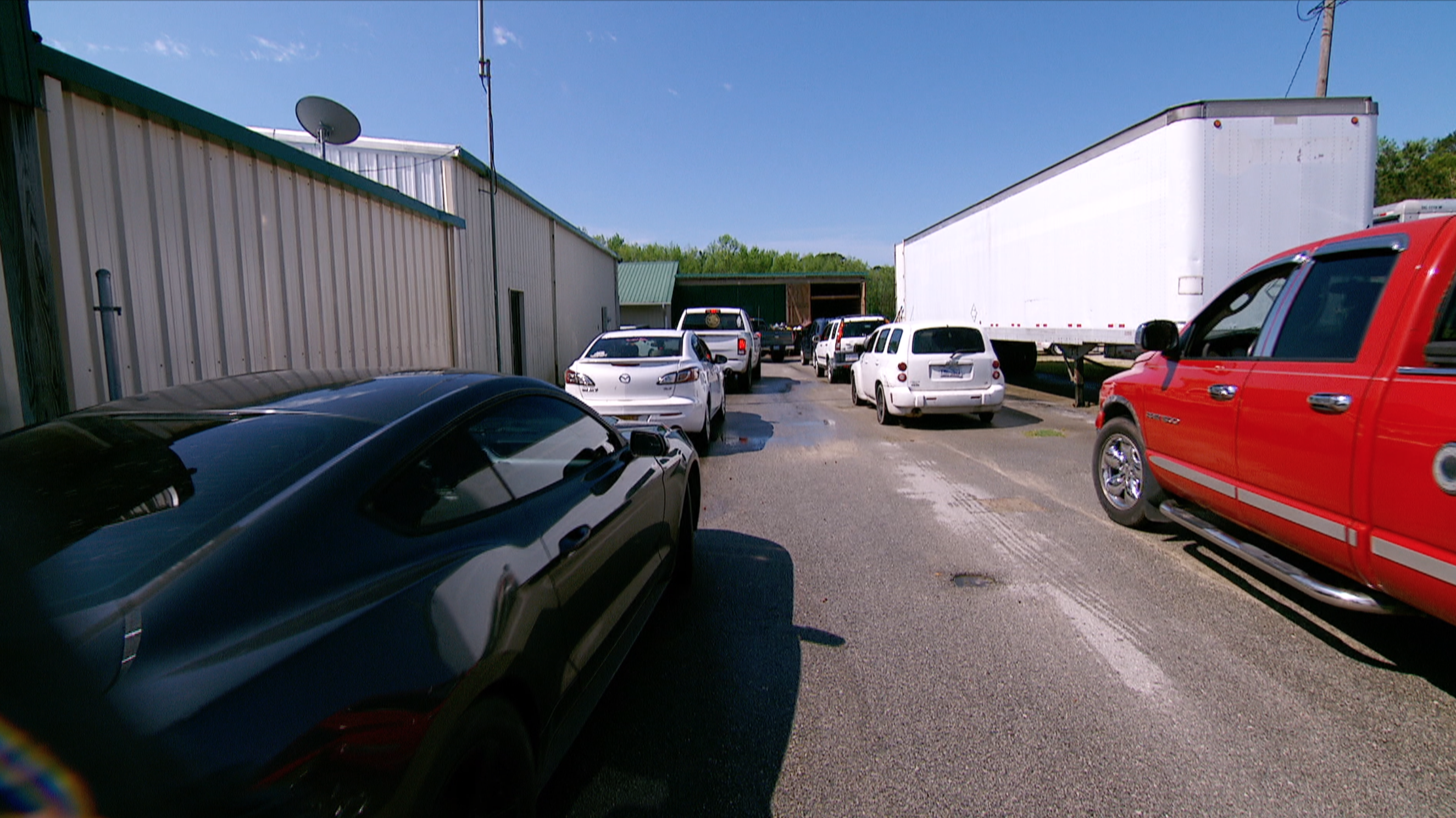Editor's note: CGTN Reporter, Sean Callebs, is on a road trip around the East Coast of the U.S., gathering stories and documenting the impact COVID-19 is having on different communities. These are some of his insights.

Lots of groceries that are bagged up in a county building a 10-minute drive from the distribution point. Volunteers do all the work.
Lots of groceries that are bagged up in a county building a 10-minute drive from the distribution point. Volunteers do all the work.
We left Washington, DC, about a week ago, driving south along the Atlantic seaboard to see how people are coping amid the emotional, physical and economic strain of COVID-19.
We've met a host of real people, facing a real crisis.
One who stands out is 66-year-old Susan Noggin.

Susan Noggin. 66-years-old, she has been a county resident for just over a year. She moved to Jacksonville, NC to be closer to her children, and grandchildren, every retirees dreams. But elderly, and coping with existing medical conditions Susan is worried about her health and these days rarely ventures out of her home.
Susan Noggin. 66-years-old, she has been a county resident for just over a year. She moved to Jacksonville, NC to be closer to her children, and grandchildren, every retirees dreams. But elderly, and coping with existing medical conditions Susan is worried about her health and these days rarely ventures out of her home.
When asked what worries her most about the pandemic, she didn't hesitate, instantly delivering a sobering reminder of what is at stake. "Staying alive," she said.
We met Susan at an outreach center in Onslow County, North Carolina. She was one of dozens of local residents waiting patiently in a long, winding string of cars to load up on bags of free groceries.
It is all part of the multi-layered county-wide plan to assist those in most need during the global crisis. We chatted with Susan as the line quickly moved, and she agreed to let us follow her to her rural home, ten kilometers or so from the outreach center. Like all single families, Susan received two bags of groceries, one brown bag – one gray bag.
Inside the county calculates there are enough items to provide 21 meals within the coming week. The county counts about 200-thousand residents, about one-fourth of them military, serving at the large U.S. Marine base in Jacksonville, NC – Camp Lejeune. Just like virtually every other community in the United States, the pandemic is delivering a punishing blow to the local economy.

Volunteers waiting to load groceries into vehicles. Every family gets one brown bag, and one gray bag of groceries. The only requirement to get the food items is that people must be full-time residents of Onslow County. That said, no one asks for ID, or proof. County officials say they know everyone in the region is hurting.
Volunteers waiting to load groceries into vehicles. Every family gets one brown bag, and one gray bag of groceries. The only requirement to get the food items is that people must be full-time residents of Onslow County. That said, no one asks for ID, or proof. County officials say they know everyone in the region is hurting.
Susan and her husband moved here just about a year ago. They left the South Carolina coast after retirement to be closer to their children and grandchildren. The trip to pick up the groceries, however, was only her fifth trip away from her home since late February. She and her husband are in the crosshairs of those most at risk. Elderly, with existing medical conditions. So all those trips to see the grandchildren will be on hold.
On top of that, with so many U.S. Marines here, it creates a transient population. It is impossible at this point to know who has been exposed to the virus, so that is why the Noggins are dug in and not leaving home unless they need to.

There are two lines of cars, and the operation is amazing fluid. Officials have only been doing this a short time, but they think it is going so well, in part because they have good relationships with the military base and county health professionals. Jacksonville is along the coast and has a lot of experience at dealing the crisis that comes with hurricanes. The biggest difference the county says, is they know hurricanes come and go. No one knows when the pandemic crisis will end.
There are two lines of cars, and the operation is amazing fluid. Officials have only been doing this a short time, but they think it is going so well, in part because they have good relationships with the military base and county health professionals. Jacksonville is along the coast and has a lot of experience at dealing the crisis that comes with hurricanes. The biggest difference the county says, is they know hurricanes come and go. No one knows when the pandemic crisis will end.
"When I go to the store, I watch and see where everyone is," she said. "It's not just a social distance of six feet. I swing way out and leave myself lots of room."
This is the new normal. Everyone from county government authorities to medical workers believes the worst is yet to come to this area of the country. The county is doing what it can to help. Susan is certainly making sure she is doing what she can to avoid contracting the virus. The wild card remains... everyone else.
The latest numbers show fewer than three-dozen people in Onslow County have tested positive for the coronavirus – including one person who died. Susan is depending on everyone else to listen to health warnings, stay at home, and embrace social distancing.
Check out The China Report, our new weekly newsletter. Subscribe here!